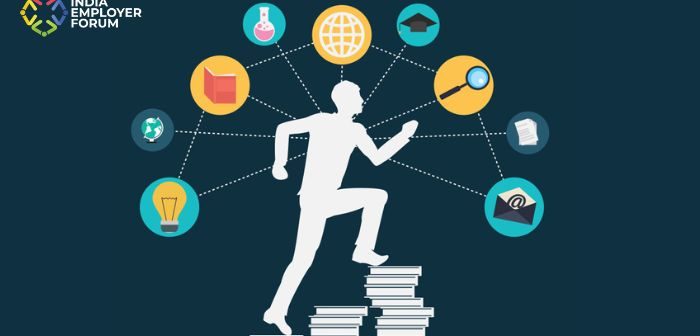In today’s rapidly evolving world of work, where technological advancements and economic shifts are the norm rather than the exception, embracing lifelong learning has become the new-age mantra for both individuals and businesses. The days of pursuing a single career path with a fixed set of skills are long gone. Instead, the ability to adapt, upskill, and re-skill throughout one’s professional journey has become the cornerstone of success.
Lifelong learning is a broad concept that goes beyond formal education and degree programs. It encompasses a dynamic process of acquiring knowledge, skills, and experiences that span an entire lifetime. Whether you’re a seasoned professional or just starting your career, the value of lifelong learning is undeniable.
Here, we’ll delve into why lifelong learning has become the linchpin of success in the contemporary world of work and explore strategies for individuals and businesses to foster a culture of continuous skill development.
The Need for Lifelong Learning for the Individual
In a world dominated by rapid technological advancements, professionals must continually update their skills to stay relevant. For instance, the programming languages or software tools in vogue today may become obsolete in a few years, making it essential to keep learning.
- Meeting Changing Job Market Demands: The job market is constantly evolving, with new roles emerging and old ones fading away. Lifelong learning allows individuals to adapt to these changes and seize emerging opportunities by adapting to technological advancements .
- Enhancing Employability: Employers value individuals who are proactive about their professional development. A commitment to lifelong learning not only makes you a more valuable asset to your current employer but also opens up new career prospects.
- Cultivating Resilience: Lifelong learning fosters resilience by encouraging individuals to embrace change and uncertainty. It equips them with the tools to navigate shifting landscapes with confidence.
- Strategies for Lifelong Learning: The internet offers a plethora of resources for learning new skills, from massive open online courses (MOOCs) to specialized certifications within your domain. These can be particularly convenient for working professionals.
- Mentorship and Networking: Learning from experienced mentors and connecting with industry peers can provide valuable insights and opportunities for growth and career development.
- Conferences and Workshops: Attending conferences, workshops, and seminars can expose you to the latest trends and innovations in your field. It helps you engage with stalwarts of the industry and adopt best practices.
- Reading and Self-Study: Books, journals, and industry publications remain valuable sources of knowledge. Regular reading can keep you informed about the latest developments in the industry.
The Role of Business in Promoting L&D
Enlightened businesses recognize the importance of lifelong learning and play a pivotal role in fostering a culture of continuous skill development. This enables several benefits such as providing them with a continuous supply of talent, reign in attrition by encouraging employees to learn and grow with the organization, and finally it also helps them stay ahead of the competition.
- Invest in Employee Development: Companies can provide training programs, workshops, and resources to help their employees acquire new skills and stay up-to-date with industry trends. This also reflects an organizational commitment to the career progression plans of individual employees which helps to ensure long-term engagement.
- Encourage Knowledge Sharing: Create an environment where employees are encouraged to share their expertise and mentor colleagues, promoting a culture of learning within the organization. This also helps provides organizations access to a robust talent pool.
- Support Time for Learning: Recognize that employees need time for self-improvement. Offering flexible work arrangements or study leave can go a long way in promoting lifelong learning.
- Stay Ahead of Industry Trends: Businesses themselves need to stay updated with industry trends to remain competitive. By doing so, they set an example for their employees to follow and at the same time ensure their own place in the sun.
In conclusion, the modern world of work is dynamic, and success hinges on one’s ability to adapt and learn continuously. Lifelong learning is not merely a personal choice; it’s a strategic imperative for individuals and businesses alike. Embracing this new-age mantra is the key to unlocking a world of opportunities and staying ahead in an ever-evolving professional landscape.
References:
- Lifelong learning is becoming an economic imperative | The Economist | Jan 2017
- Lifelong Learning Is Good for Your Health, Your Wallet, and Your Social Life | Harvard Business Review | Feb 2017
- The Power Of Lifelong Learning: How Curiosity Forges Mastery | People Matters | April 2023
You might also be interested to read: 10 Top Missions for Skill Development and Employment by Government




